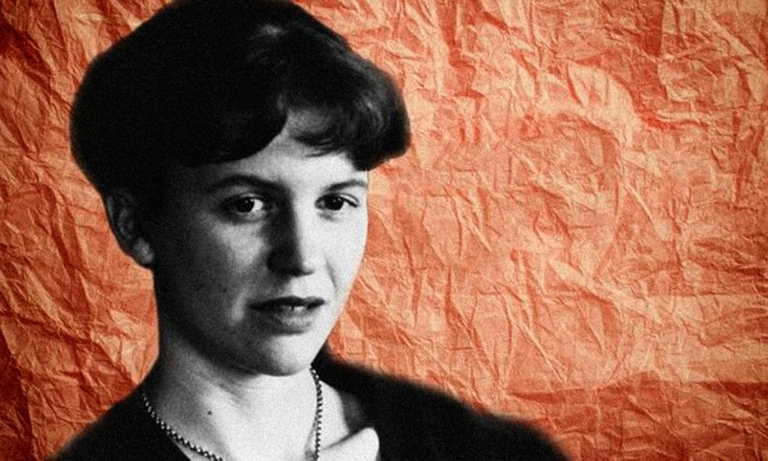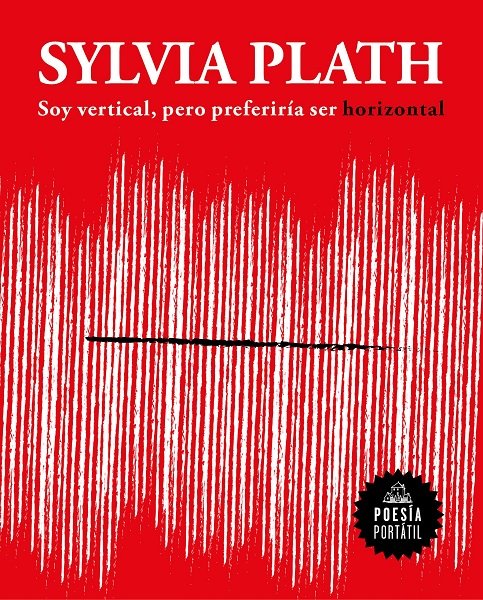Escarceos en la poesía de Sylvia Plath | Explorations on the poetry of Sylvia Plath (esp. - eng.)
Desde que leí por primera vez a la poeta estadounidense Sylvia Plath, en el libro que uso para citarla hoy, publicado por Fundarte (Venezuela) en 1981, algo quedó en mí como una herida, diría el poeta venezolano Armando Rojas Guardia. Un tiempo después leí a la poeta de igual nacionalidad Anne Sexton, de similar destino, y esa herida se acentuó.
Since I first read the American poet Sylvia Plath, in the book I use to quote her today, published by Fundarte (Venezuela) in 1981, something remained in me like a wound, as the Venezuelan poet Armando Rojas Guardia would say. Some time later I read the poet of the same nationality Anne Sexton, of similar destiny, and that wound was accentuated.

Quien naciera el 27 de octubre de 1932 en Boston (USA), ocupa un lugar muy relevante en la poesía de habla inglesa producida en el siglo XX, en particular la escrita por mujeres. Se le asocia al género lírico bautizado como poesía confesional, y a la tendencia feminista. Le fue otorgado póstumamente (en 1982) el Premio Pulitzer. En la fuente citada arriba pueden conocer más sobre su vida. En el 2003 la cineasta Christine Jeffs hizo un filme que buscó recrear la biografía de Plath, titulado Sylvia, en el que Gwyneth Paltrow interpretó a la poeta.
Sylvia Plath se suicidó en 1963, a los treinta años, cuando residía en Londres. Produjo una poesía que todavía, cuando volvemos a ella, nos seduce y descoloca. Reconozco que hay algo en mí que ejerce una atracción hacia vidas trágicas como las de Plath, o a las de poetas venezolanas como Miyó Vestrini o Martha Kornblith (en algún momento trataré de escribir sobre ellas). No es mi intención entrar en consideraciones sobre vidas como las que estas excepcionales poetas tuvieron, para comenzar, por respeto a ellas y, luego, porque es un territorio cerril, entre lo existencial y psíquico, difícil de descifrar. Son tan diversas y únicas las tragedias de cada persona…
Who was born on October 27, 1932 in Boston (USA), occupies a very relevant place in English-language poetry produced in the twentieth century, particularly that written by women. She is associated with the lyrical genre baptized as confessional poetry, and with the feminist tendency. She was posthumously awarded (in 1982) the Pulitzer Prize. In the source cited above you can learn more about her life. In 2003 filmmaker Christine Jeffs made a film that sought to recreate Plath's biography, titled Sylvia, in which Gwyneth Paltrow played the poet.
Sylvia Plath committed suicide in 1963, at the age of thirty, while living in London. She produced a poetry that still, when we return to it, seduces and unsettles us. I recognize that there is something in me that exerts an attraction to tragic lives like Plath's, or to those of Venezuelan poets like Miyó Vestrini or Martha Kornblith (at some point I will try to write about them). It is not my intention to enter into considerations about the lives of these exceptional poets, to begin with, out of respect for them, and then, because it is a narrow territory, between the existential and the psychic, difficult to decipher. The tragedies of each person are so diverse and unique.... Solo les compartiré unos versos de sus poemas (que son extensos, generalmente, y ustedes podrán leer en una selección aquí), extraídos de la edición referida. Antes quisiera citar a la prologuista y traductora de la antología de poemas de Sylvia Plath usada aquí, la investigadora y académica, Julieta Fombona Sucre. Refiriéndose a Sylvia Plath puntualiza: (…) tanto el suicidio como la obra parecen tener un mismo origen: la voluntad de ser tan radical como la realidad, tan implacable como la crueldad anónima, neutra, que se manifiesta cuando se disipan las apariencias de ese yo crédulo y maniqueo que cada quien se construye como morada. I will only share with you a few verses of his poems (which are generally long, and you can read a selection here), extracted from the referred edition. (...) both the suicide and the work seem to have the same origin: the will to be as radical as reality, as implacable as the anonymous, neutral cruelty that manifests itself when the appearances of that credulous and manichean self that each one builds as a dwelling are dissipated. Una sonrisa cayó en la hierba. (de “Las danzas nocturnas”) La luna es mi madre. No es dulce como María. (de “La luna y el tejo”) La eternidad me aburre, (de “Años”) Una pared gris ahora, arañada y sangrienta. (de “Aprensiones”) La luna posa una mano en mi frente. (de “Horas tempranas”) Y, por último, un poema completo: Hachas La savia que cae y gira, Palabras secas y sin jinete. Quise cerrar el modesto artículo sobre la poeta de La campana de cristal, con un poema que recoge, en gran medida, esa visión desencantada que tuvo ella, y que allí se condensa, precisamente, en la materia de toda poesía: las palabras. Siendo contundentes como hachas y vivas como savia, cual aprecio que fueron las suyas, las palabras quedarían solo como una representación sin alma (ecos), olvidadas, sin la fuerza que las impulsó (sin jinete), y marcadas quizás por designios inasibles. Sin embargo, la contundencia, la fuerza, la vitalidad de su poesía, configurada en un lenguaje transgresor, de cierto talante surrealista, es indudable, y hoy podemos seguir sintiéndola.
First I would like to quote the one who selects, prologues and translates the anthology of Sylvia Plath's poems used, the researcher and academic Julieta Fombona Sucre. Referring to Sylvia Plath she points out:

¡Irrecuperable!
Sus manos azules largan pequeños murciélagos y lechuzas.
Cómo me gustaría creer en la ternura
nunca la quise.
¿No hay manera de salir de la mente?
Su cara vacua y muda como una enfermera.Palabras
tras cuyo golpe la madera resuena
¡Y los ecos!
Ecos que se alejan
desde el centro como caballos.
se hincha como lágrimas, como el
agua esforzándose
por re-establecer su espejo
sobre la roca
una calavera blanca,
carcomida por hierbajos.
Años más tarde
las encuentro en el camino
El incansable ruido de los cascos.
Mientras
desde el fondo del pozo, astros fijos
gobiernan una vida.
A smile fell on the grass. (from "The Night Dances") The moon is my mother. She is not sweet like Mary. (from "The moon and the yew tree") Eternity bores me, (from "Years") A gray wall now, scratched and bloody. (from "Apprehensions") The moon lays a hand on my forehead. (from "Early Hours") And finally, a complete poem: Axes The sap that falls and turns, Dry and riderless words. I wanted to close this modest article on the poet of The Crystal Bell, with a poem that gathers, to a great extent, that disenchanted vision that she had, and that there is condensed, precisely, in the matter of all poetry: the words. Being forceful as axes and alive as sap, as I believe hers were, the words would remain only as a representation without soul (echoes), forgotten, without the force that drove them (without a rider), and perhaps marked by ungraspable designs. However, the forcefulness, the strength, the vitality of his poetry, configured in a transgressive language, with a certain surrealist mood, is unquestionable, and we can still feel it today. Plath, Sylvia (1981). Poemas. Caracas: Fundarte.
Irretrievable!
Her blue hands give off little bats and owls.
How I would like to believe in tenderness
I never wanted it.
Is there no way out of the mind?
Her face vacant and mute as a nurse.Words
after whose blow the wood resounds
And echoes!
Echoes that move away
From the center like horses.
swells like tears, like water straining
water striving
to re-establish its mirror
on the rock
a white skull,
eaten away by weeds.
Years later
I find them on the road
The tireless clatter of hooves.
While
from the bottom of the well, fixed stars
govern a life.Referencia / Reference:



#posh
https://twitter.com/jorma08/status/1453894037455392768?s=20
Amigo una Excelente publicación.
Gracias, @elsan.artes.
Esta publicación ha recibido el voto de Literatos, la comunidad de literatura en español en Hive y ha sido compartido en el blog de nuestra cuenta.
¿Quieres contribuir a engrandecer este proyecto? ¡Haz clic aquí y entérate cómo!
Gracias, amigos de @es-literatos.